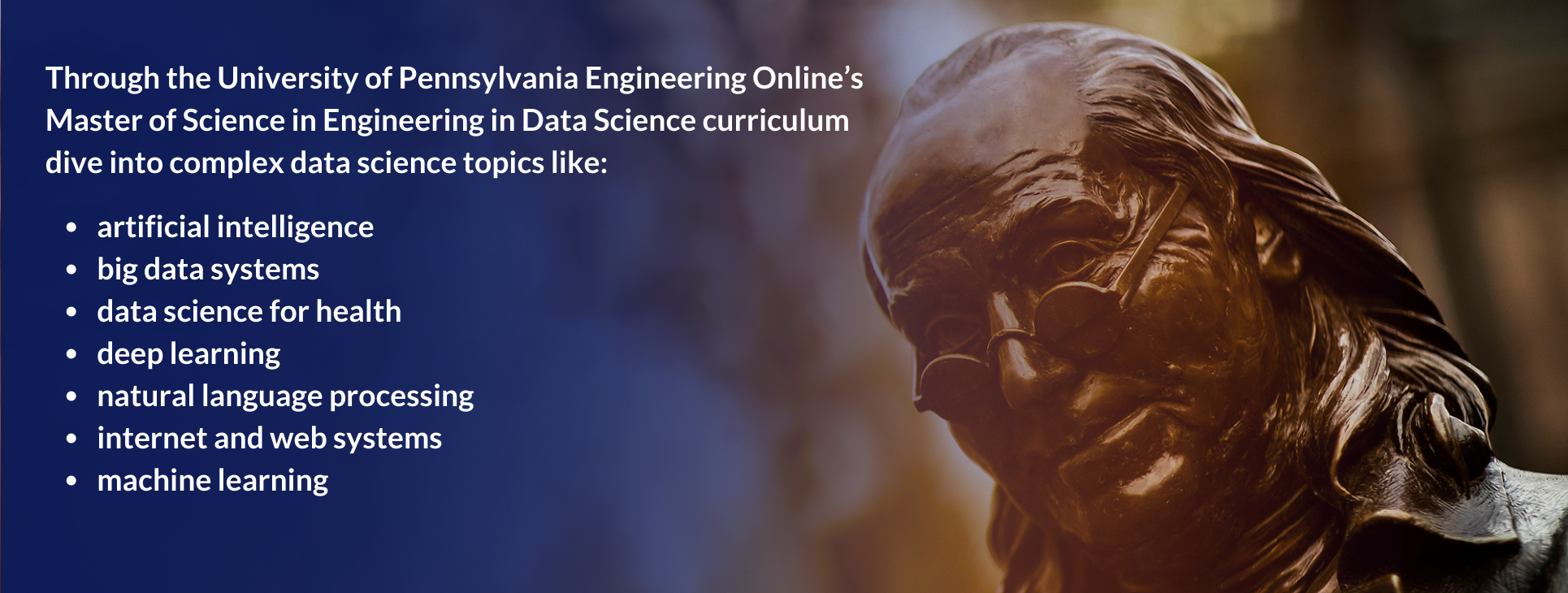You might have heard of the term Big Data. It means a large amount of structured or unstructured data collected from different sources such as websites, mobile apps, and other systems.
The Rising Demand for Data-analyst
1. Industry research from the WEF (World Economic Forum) shows that data-analysis roles are projected to grow by around 30-35% in the near term.
2. A 2025 stats summary by ZipDo Education reports the demand for data analysts is projected to grow by 28% from 2021 to 2031.
3. When searching “data analyst” on LinkedIn in 2025, 57,635 results appear.
To meet this surge, universities across the U.S. have launched specialized programs in Data Analytics, Business Intelligence, Big Data Technologies, and AI-Driven Decision-Making. These programs blend technical training with real-world applications, to equip graduates to turn massive datasets into business insights.
In this guide, we’ll highlight 10 of the best college programs in the U.S. for studying Big Data Analytics — what makes each stand out, and which might fit your background and career goals best.
Best Universities to Study Big Data Analytics
Here are some of the best schools for data analytics and data science programs in the United States.
1. Massachusetts Institute of Technology (MIT): Master of Business Analytics
Established in 1914, MIT Sloan School of Management ranks #1 in the QS Business Masters Rankings. Concentrating on Systems, analytics, and human-centered data science, it is a great choice for high-tech professionals (such as engineers, mathematicians, and computer programmers) who want to take their skills to the next level and build a career in data analytics.
Highlights:
- Focus on machine learning and artificial intelligence
- Access to cutting-edge research labs
- Strong career placement in tech and finance
Location: Cambridge, Massachusetts
Program duration: 1 year
2. Carnegie Mellon University: Master of Science in Information Technology: Business Intelligence and Data Analytics
The Heinz College at CMU offers a master’s program in IT that allows students to further their study in Business Intelligence and Data Analytics. It is suitable for early-career professionals with around 3 years of working time in the field of IT, with leadership experience preferred. As an online course, it allows students to access all the courses and resources as on-campus learners, without having to leave where they work.
Highlights:
- Specializations in big data technologies and AI
- Strong alumni network in top tech companies
- Offers both undergraduate and master’s degrees in data science
Location: Pittsburgh, Pennsylvania
Program duration: 2 years
Source from: Statistics and Data Science B.Sc. at Carnegie Mellon University
3. University of Chicago: Master of Science in Analytics
The Master of Science in Analytics program is offered by the Graham School of the University of Chicago. This program welcomes students who are determined to pursue a career in analytics, including those who are either in their early- or mid-career.
Students will develop the ability to analyze big data and generate business insights.
Highlights:
- Real-world projects with corporate partners using authentic datasets
- Faculty includes industry leaders in emerging AI / AutoML technologies
- Flexible modes: full-time, part-time, on-campus or online options
Location: Chicago, Illinois
Program duration: 1 year (full-time) or up to 4 years (part-time)
Source from: MS – Applied Data Science at UChicago
4. University of Texas at Austin: Master of Science in Business Analytics
This program equips students with skills in statistical analysis, data mining, natural language processing, and machine learning, to help them gain insights from fields including finance, marketing, and supply chain management. Students can also benefit from the incredible networking opportunities with alumni who are industry leaders from Walmart, Deloitte Consulting, and McKinsey.
Highlights:
- Two formats: full-time in-campus and part-time online/hybrid with immersive in-person sessions.
- STEM-eligible, career-focused curriculum with electives in financial analytics, supply chain, marketing analytics.
- Strong alumni network (McCombs) and extensive career support.
Location: Austin, Texas
Program Duration: 10 months
Source from:
1. MS Business Analytics: Online – McCombs School of Business
2. Master of Science in Business Analytics Full-Time Program
5. Northwestern University: Master of Science in Analytics
This MSIA program features an 8-months practicum project, a 3-month summer internship with leading companies, and a 10-week capstone project. Students will receive adequate industry exposure to gain practical experience throughout this program.
For students who need training in programming, Northwestern provides special sessions on SAS, SPSS, Cognos, Tableau, etc to help them get prepared.
Highlights:
- Curriculum includes industry-based projects/practicums to apply skills in real-data settings.
- Strong technical + ethical grounding: machine learning, AI, predictive/prescriptive analytics plus leadership and communication skills.
- Smaller cohort size, allowing more individual attention.
Location: Evanston, Illinois
Program Duration: 15 months (full-time)
6. Cornell University: Master of Professional Studies (MPS) in Applied Statistics
The M.P.S. program consists of two-semester courses covering statistical applications, computing, and consulting, electives from the Department of Statistical Science, and a large-scale data-analysis project in the end (instead of a thesis or exam.)
Students will be able to master statistical theory and develop proficiency in the use of statistical software upon graduation.
Highlights:
- Two specialization tracks: Statistical Analysis or Data Science (the latter includes more computing, databases, scripting)
- Capstone / large-scale data analysis project over two semesters, often with external / industry involvement
- Rigorous core curriculum + electives; strong theoretical and practical statistics foundation
Location: Ithaca, New York
Course Duration: 1-2 years
Source from: Masters in Data Science & Applied Statistics (MPS)
7. University of Pennsylvania: Master of Science in Engineering in Data Science
Penn’s MSE in Data Science prepares students for a data-driven career, such as technology and engineering, science, and consulting.
Highlights:
- Curriculum includes foundational, core, and elective courses with specialization options.
- Flexible learning: on-campus or fully asynchronous online courses.
- Hands-on experience via practicum or thesis.
Location: Philadelphia, Pennsylvania
Program Duration: 1.5-2 years
Source from: MSE-DS Online Courses

8. New York University: MS in Data Science
As the earliest university to have an MS in Data Science program, NYU offers several concentrations for students in this program to choose from, including data science, big data, mathematics and data, natural language processing (NLP), and physics.
There is ample opportunity for training in the form of an internship semester and a capstone project, which allows students to get hands-on experience in collecting and processing data.
Highlights:
- Offers multiple concentrations: data science, big data, math & data, NLP, and physics.
- Hands-on training via internship semester and capstone project.
- Strong focus on practical data collection, processing, and analysis skills.
Location: New York, New York
Program Duration: 2 years
9. Purdue University: Master of Science in Business Analytics and Information Management
I graduated from Purdue with a degree in Hospitality and Tourism Management. It was an amazing study experience in a peaceful city.
Purdue Krannert School of Management offers this program that typically starts in June and continues for 3 semesters. It focuses on supply chain analytics, investment analytics, or corporate finance analytics.
Through the courses, students will learn to use data analysis tools such as SAS, Python, Minitab, and SQL, which are all great skills to put on the resume.
Highlights:
- Curriculum covers supply chain, investment, and corporate finance analytics with hands-on projects.
- Emphasis on technical skills: SAS, Python, Minitab, SQL for real-world data analysis.
- Experiential learning through industry practicum to apply classroom knowledge.
Location: West Lafayette, Indiana
Program Duration: 1 year
Source from: MS Business Analytics and Information Management
Experience
10. Stanford University: M.S. in Statistics: Data Science
The fields of study in this program include statistics, cognitive science, applied math, engineering science, and mathematics, which require students to possess strong mathematical, computational, and programming skills.
Upon graduation, students can continue to pursue a Ph.D. degree (but not guaranteed). Stanford is well known for its data science and analytics degree programs, with strong connections to Silicon Valley.
Highlights:
- Interdisciplinary curriculum in statistics, computer science, and engineering
- Opportunities to work with industry partners
- Popular among students aiming for data-driven entrepreneurship
Location: Stanford, California
Program Duration: 1 year
What are the most Popular Big Data Programs
Top 5 Popular Big Data Programs
Based on enrollment statistics and industry demand, here are the five most popular big data program categories, if you find it difficult to choose from numerous programs:
1. Master of Science in Data Science
Programs like NYU, UC Berkeley, and Stanford lead this category. NYU was the first university to offer an MS in Data Science program and includes concentrations in machine learning, natural language processing, and mathematics. These programs typically require 32-36 credit hours with capstone projects using real-world datasets.
2. Master of Business Analytics
MIT Sloan’s 1-year MBA program ranks first in QS Business Masters Rankings. Carnegie Mellon’s MSBA program completes in 9 months and focuses on transforming data into business decisions. These programs target professionals with 3-5 years experience and emphasize business applications of analytics.
3. Applied Data Science and AI Programs
Carnegie Mellon’s MS in Data Analytics for Science requires 144 units (12 courses) over 2-3 years. These programs combine traditional statistics with AI frameworks, cloud computing, and automated analytics. No GRE requirement reflects the practical focus over academic testing.
4. Big Data Engineering Programs
Specialized programs covering Apache Spark, Hadoop, AWS, Google Cloud, and Azure. Northwestern’s 15-month MSIA program includes an 8-month practicum and 3-month industry internship. Training includes SAS, SPSS, Cognos, and Tableau for technical professionals.
5. Industry-Specific Analytics Programs
Healthcare analytics programs analyze electronic health records and medical imaging. Financial analytics focuses on investment and corporate finance. Supply chain analytics covers logistics optimization. These programs combine core data science with domain expertise for immediate industry application.
What Makes a Good Data Science Program?
If you want to pick the a program that benefits you most, here’s what separates the best from the rest:
1. Comprehensive Core Curriculum
Strong programs cover statistics, linear algebra, Python and R programming, machine learning algorithms, and database management (SQL). Cornell’s MPS in Applied Statistics requires statistical applications, computing, consulting, and a large-scale data analysis project instead of thesis defense.
2. Technology and Tools Training
Current programs teach cloud platforms (AWS, Azure, Google Cloud), big data frameworks (Spark, Hadoop), visualization tools (Tableau, Power BI), and AI frameworks. University of Pennsylvania’s MSE in Data Science covers 1.5-2 years of technology-focused curriculum for engineering careers.
3. Hands-On Experience Requirements
Look for mandatory capstone projects, internship components, and industry partnerships. Stanford’s MS in Statistics requires strong mathematical and computational skills with optional PhD pathway. Northwestern provides 8-month practicum projects with leading companies plus 10-week capstone requirements.
4. Faculty Industry Experience
Top programs feature professors with both academic credentials and practical experience. MIT’s program concentrates on systems, analytics, and human-centered data science, targeting engineers, mathematicians, and computer programmers advancing their careers.
5. Flexible Program Structure
University of Chicago offers 1-year full-time or up to 4-year part-time options. Carnegie Mellon’s MSIT-BIDA allows working professionals to continue employment while completing coursework online with same resources as on-campus students.
6. Career Outcomes and Support
Research graduation placement rates and starting salaries. Programs with strong industry connections provide networking opportunities, job placement assistance, and alumni networks. University of Texas Austin connects students with alumni from Walmart, Deloitte Consulting, and McKinsey.
7. Specialization Options
Advanced programs offer concentrations in machine learning engineering, business intelligence, healthcare analytics, or financial data science. Purdue’s program focuses on supply chain analytics, investment analytics, or corporate finance analytics with tools like SAS, Python, and SQL.
No-Code Path to Big Data: Octoparse
If you’re taking a major in Big Data Analytics or a program like BA, Data Science or AI, one of your early challenges is where to get real-world, clean data to practice on. This can be easily achieved by using data extraction tools like Octoparse, which helps get the data from a large number of websites automatically.
Case Study
Purdue University’s Center for Food Demand Analysis & Sustainability partnered with Octoparse and built dashboards using web-scraped data on consumer prices.
Octoparse offers special discount for student in higher education. Contact our support team (available 24/7) for eligiblity of student discount!
With Octoparse you can select a website, extract content (text, links, download images), and export the data to Excel, CSV or JSON — or connect directly via API. In other words: you can build your own datasets, apply what your program teaches you, and become the student creating data insight, rather than simply reacting to pre-built data.
Turn website data into structured Excel, CSV, Google Sheets, and your database directly.
Scrape data easily with auto-detecting functions, no coding skills are required.
Preset scraping templates for hot websites to get data in clicks.
Never get blocked with IP proxies and advanced API.
Cloud service to schedule data scraping at any time you want.
Conclusion
Studying at one of the best universities for data analytics in the USA can give you a major advantage in today’s job market.
Whether you aim to become a data scientist, business analyst, or engineer, the right program should give you three things:
hands-on experience, industry exposure, and tools to work with real data from day one.
As data keeps shaping every sector — from finance to healthcare, logistics, and policy — the ability to gather, clean, and interpret large-scale information will only grow in value. Graduates with solid analytics training and practical data-handling experience will be in the strongest position to lead digital transformation initiatives in the next decade.
FAQs about Universities for Studying Big Data
- Where can I find university programs in big data analytics?
Start with comprehensive ranking sites like:
- QS World University Rankings (for Data Science & Analytics)
- U.S. News Best Graduate Schools
- Times Higher Education (THE) Subject Rankings
Then shortlist by career focus — not just academic prestige.
For example:
- Georgetown University and San Diego State University both offer MS programs with strong career development components, pairing coursework with mentorship or practicum projects.
- If you prefer flexibility, platforms like Coursera and edX list university-affiliated data analytics programs (some offer credit transfer options).
💡 Tip: Before applying, read LinkedIn profiles of recent alumni — you’ll see where graduates actually end up working. That often reveals more than brochures do.
- Which institutions are leaders in data-driven engineering?
If your goal is to combine engineering foundations with data analytics, look at these programs:
- MIT – Master of Business Analytics (ranked #1 globally)
- Carnegie Mellon University – MSIT-BIDA (Business Intelligence & Data Analytics)
- Stanford University – MS in Statistics (Computational focus)
- Northwestern University – MS in Analytics (McCormick School of Engineering)
- University of Pennsylvania – MSE in Data Science
🧭 Advice: Don’t just look at “ranking”. Check curriculum overlap — for instance, whether it includes machine learning for engineers or data-driven systems design, which are crucial if you want to work in applied AI or IoT analytics.
- Where can I find programs with strong placement rates into analytics roles?
Focus on universities with active industry partnerships or required internships:
- University of Texas at Austin connects with Walmart, Deloitte, and McKinsey for capstone placements.
- Northwestern University guarantees a 3-month industry internship, often leading to full-time offers.
- Georgia Tech and Columbia University have strong pipelines into tech and consulting.
- Are there business programs that emphasize data-driven decision-making?
Yes — several top business schools are now integrating analytics with management:
- MIT Sloan – 1-year Master of Business Analytics, globally ranked #1.
- Carnegie Mellon Tepper – 9-month MS in Business Analytics.
- University of Chicago – MS in Analytics, heavy focus on predictive modeling for business.
- Duke Fuqua – MSQM: Business Analytics (part-time and online options).
🎯 Advice: If your goal is strategy + data, choose programs with courses in data visualization, decision modeling, and storytelling with data. These skills differentiate analytics consultants from pure data scientists.
- What are the 4 types of big data?
By Structure:
- Structured data – Organized in databases (e.g., student records, transactions).
- Semi-structured data – JSON, XML, etc. — common in APIs and web scraping.
- Quasi-structured data – Clickstreams, log files — messy but full of behavioral insight.
- Unstructured data – Texts, images, videos — where AI and NLP shine.
By Analytics Type:
- Descriptive: What happened?
- Diagnostic: Why did it happen?
- Predictive: What’s likely next?
- Prescriptive: What should we do about it?
💡 Tip: Before applying to a program, check if they cover all four analytics types, especially predictive and prescriptive analytics. These are the ones employers value most.




